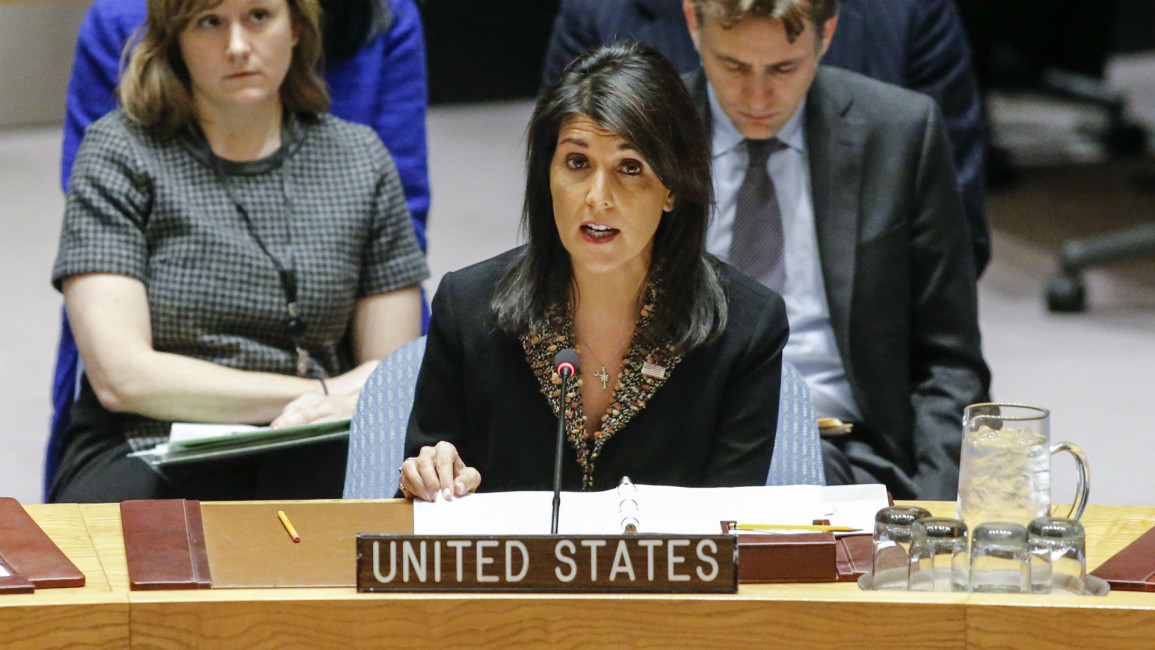US vetoes UN resolution rejecting Jerusalem recognition
Breaking with decades of US policy, President Donald Trump also said on 6 December that he would move the US embassy from Tel Aviv to Jerusalem.
The move sparked international condemnation and protests in the Arab and Muslim world.
The veto cast by US Ambassador Nikki Haley highlighted Washington's isolation over Trump's announcement that the US embassy will be moved from Tel Aviv to Jerusalem, effectively ignoring Palestinian claims on the city.
"What we witnessed here today in the Security Council is an insult. It won't be forgotten," said Haley.
"[It is] one more example of the United Nations doing more harm than good in addressing the Israeli-Palestinian conflict."
All 14 other Security Council members backed the measure including key US allies: the UK, France, Italy, Japan and Ukraine.
The measure asserted that any decisions on the status of Jerusalem "have no legal effect, are null and void and must be rescinded".
"The United States will not be told by any country where we can put our embassy," Haley told the council.
Egypt put forward the draft resolution which insists that Jerusalem is an issue "to be resolved through negotiations" between Israel and the Palestinians and expresses "deep regret at recent decisions concerning the status of Jerusalem".
It did not specifically mention Trump's move.
The US along with the UK, China, France and Russia can veto any resolution presented to the council, which requires nine votes for adoption.
US vice-President Mike Pence will visit Jerusalem on Wednesday, wading into the crisis over one of the most controversial issues in the Israeli-Palestinian conflict.
Israel seized control of the eastern part of the city in the 1967 Middle East war and sees all of Jerusalem as its undivided capital.
The Palestinians view the east as the capital of their future state, and East Jerusalem is considered occupied Palestinian territory under international law.
The draft resolution had included a call on all countries to refrain from opening embassies in Jerusalem, reflecting concerns that other governments could follow the US lead.
It demanded that all member-states not recognise any actions that are contrary to UN resolutions on the status of the city.


![President Pezeshkian has denounced Israel's attacks on Lebanon [Getty]](/sites/default/files/styles/image_684x385/public/2173482924.jpeg?h=a5f2f23a&itok=q3evVtko)



 Follow the Middle East's top stories in English at The New Arab on Google News
Follow the Middle East's top stories in English at The New Arab on Google News


